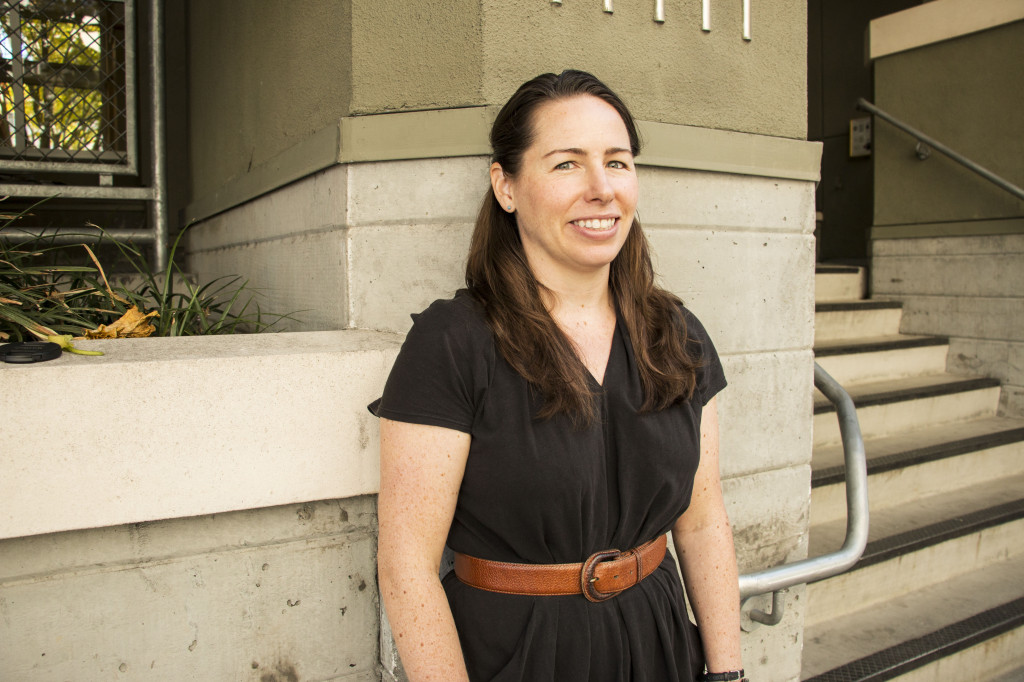
Alumna Megan Vanneman was in her third year at the School of Public Health (opens in a new tab) when she became interested in examining the effects of the decentralized public mental health care system in California.
“I’ve always been interested in large health care systems and the variability in the type of care, the cost of care and the quality of care in those large systems,” said Vanneman, who finished her PhD program at Berkeley in 2013.
Last month, Vanneman’s research came to fruition when she published an article on the topic, “Linking the Legislative Process to the Consequences of Realigning California’s Public Mental Health System (opens in a new tab)“ in Administration and Policy in Mental Health and Mental Health Services Research. Her work focuses on in-depth interviews with 10 policymakers and administrators about the state of mental health in California.
Funding for her dissertation work came from UC Berkeley’s Graduate Division, the School of Public Health and the California Program on Access to Care (opens in a new tab). Her paper was also supported by a postdoctoral fellowship from the VA Office of Academic Affiliations (opens in a new tab).
“Berkeley’s strength as an institution is that it has many excellent departments, especially for graduate students,” said Vanneman, who adds that it was critically important how she had access to an interdisciplinary committee for her dissertation.
Her dissertation focuses exclusively on California, which she says is a great case for its varied socioeconomic, geographic and racial ethnic groups. California has 57 county mental health systems, even though there are 58 counties (two counties run their health care system together).
Vanneman’s research started when she began reading more about California’s public mental health care system and learned that the system had been decentralized in the early 1990s. Decentralizing the system, according to Vanneman, meant transferring the financial resources from the state government to the county government.
She was interested in understanding the intended and unintended consequences of the 1990s legislation, and whether California achieved what it set out to achieve with that legislation over time. “Because California is such a large and diverse state, it made a lot of sense to give the counties more power because they know more about the diverse needs of their populations,” said Vanneman.
During her research, she met with the leaders of the public mental health care system who had decades of institutional knowledge on the system. These included co-author of the legislation, Bruce Bronzan and Former Director of Department of Mental Health for California, Stephen Mayberg.
In her quantitative dissertation work, Vanneman broke down counties by high and low spenders and separated them by level of racial and ethnic diversity. “I was interested whether or not counties by themselves, given their increased flexibility, would increase the amount of spending they would put forth in community-based mental health care or whether or not those spending differences would be institutionalized over time,” she said. Vanneman concluded that spending inequities persisted.
Today, Vanneman works in Health Services Research at the Center for Innovation to Implementation at the Veterans Affairs Palo Alto Health Care System (opens in a new tab), and at the Center for Health Policy/Center for Primary Care and Outcomes Research (opens in a new tab) at the Stanford University School of Medicine. She is focused on access issues to health care, including three projects concerning the dual users of Veterans Affairs health care and Medicaid, performance measurement and linkage to Veterans Affairs health care after separation.
